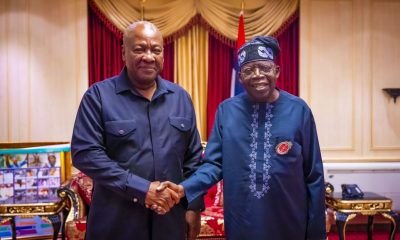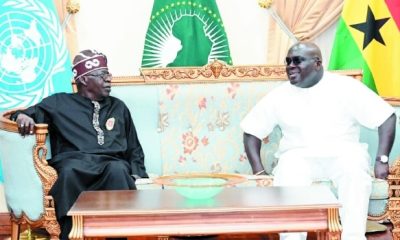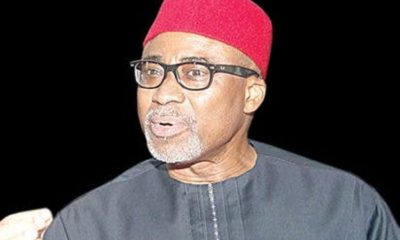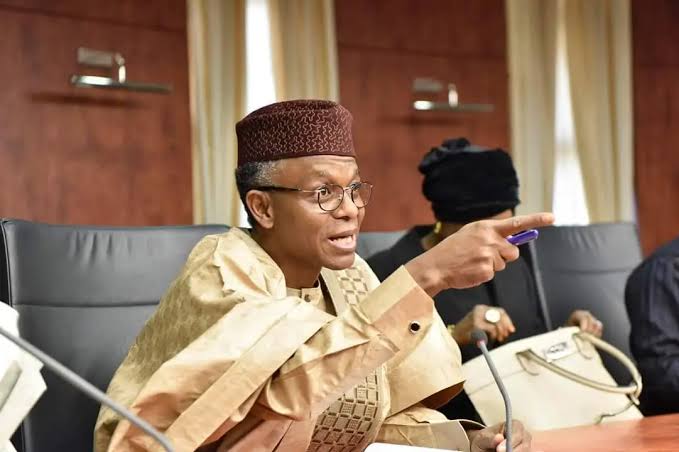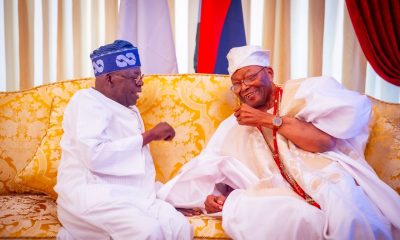Featured
APC Distinguished Itself In Election Management, Says Tinubu At Chatham House
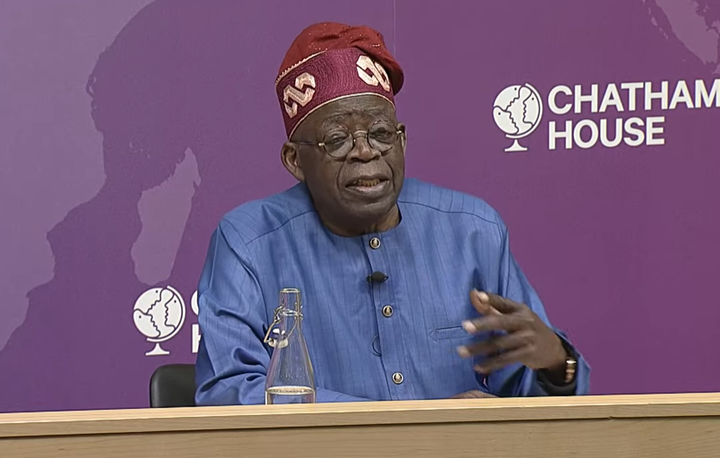
In a lecture that has all the characteristics of policy directions for renewed hope and national rebirth, the appearance in London’s Chatham House of the presidential candidate of All Progressives Congress (APC) Asiwaju Bola Ahmed Tinubu on Monday, December 5, 2022 became a moment of sober reflection for his audience as he established a nexus between authentic democracy in which the will of the majority must always prevail and some significant development indicators such as security, agriculture, youth employment, health, fiscal and monetary policy, the armed forces, and foreign policy, among others.
EDITOR’S PICKS
Entitled “Nigeria: The foreign policy imperatives of national security and development,” the former Lagos State governor and national leader of his party began his speech by acknowledging Chatham House as a repository of “intellectual engagements” that has “carved a niche for itself and built a reputation as a globally admired and respected platform.”
In expressing his optimism for the February 2023 presidential election as another milestone for “democratic consolidation” because it would be “taking place on the back of almost 25 years of unbroken civilian rule,” the APC presidential candidate also said it is “a record for the country which is worth entrenching and celebrating.”
Tinubu made it clear in his speech that he was proud of the entrenchment of the country’s democracy as she has become one of those countries whose elections are “on account of their weight and influence, carry wider implications way beyond their immediate geographical boundaries” and that it was worth noting that “one area wherein the government of the All Progressives Congress has distinguished itself is election management.”
He said because of the deployment of “technology tools for the accreditation of voters and transmission of results” the country has been able to “deliver the freest and fairest election.” Tinubu also added that “this is particularly important because the next president of Nigeria will have some tough choices to make and will not be able to do so with a questionable electoral mandate.”
While he enunciated copiously the gains that has accrued to the country in her democratic trajectory, Asiwaju nonetheless expressed the fact that more works are still needed in order to deepen the country’s democracy as there are still challenges.
He said, “ballot security and election violence are areas where there is still cause for concern.” Tinubu also harped on some brigandages that are associated with politics during election season such as “attacks against personnel and infrastructure of the Independent National Electoral Commission (INEC) in parts of the country” as well as the low tolerant level of supporters of some candidates as “political conversations on social media have become laced with violent rhetoric and threats of violent retaliation against those perceived to be opposing partisans.”
“I stand firmly against all forms of electoral violence and intimidation. Having spent most of my career in the political opposition, I have long fought against electoral malpractice and any attempts to extinguish the legitimate choice of voters. I will continue to do so,” the APC presidential candidate emphasized.
Tinubu maintained that Nigeria’s security challenges and her foreign policy imperatives cannot be divorced from the kind of relationships that exists between her immediate neighbors and the global community at large.
“Nigeria shares direct land borders with four sister African countries with whose peoples Nigerians also share historical and cultural affinities. This effectively means that the relationship between Nigeria and its immediate neighbours is much more than just a geographical expression.” Tinubu said it was perhaps this realization that informed ECOWAS to have “embedded in its mandate, the promotion of regional economic integration as a good in its own right and in addition undertook sub-regional peace and security” when it was established in 1975.
“I am convinced…that the broad principles that enabled successive Nigerian governments to interface development and security, and establish an organic link between national security and economic development with regional peace and prosperity is both impeccable and remains relevant. It is an approach which I commit myself to upholding and advancing,” the APC presidential candidate stressed.
Tinubu said as a “first step” in combating the security challenges the country faces, there’s a need to “recalibrate domestic policy in order to revamp the foundation on which our quest to pursue human security rests.” He added that this will mean, at one level, “the pursuit with renewed vigour of growth-promoting, employment-creating, and poverty-eradicating policies at home” as outlined in his Action Plan.
Asiwaju said even though he believes “that the private sector is the fulcrum of economic progress, there are “fundamental flaws with the basic design of our national economy” which imperils “the private sector from playing the role it ought to and adding the value it is capable of.” He said this anomaly would be eradicated by bringing a symbiotic relationship between “monetary and fiscal policies” to achieve a “real annual growth rate above 7 per cent while reducing the unemployment rate so that we can double the economy in ten years.”
Asiwaju said “beyond what we do nationally, we must also become much bolder as Africans in our efforts at regional and continental integration and security.” The APC presidential candidate was of the opinion that even “amidst the changes taking place in global order, the primary duty of leadership in Nigeria…is how within a vision of national development that is transformative and a strategy of national security that is human-centred, foreign policy is crafted, shared to fit and feed national priorities of rebirth and accelerated progress.”
FURTHER READING
Asiwaju Bola Ahmed Tinubu expressed confidence that the Nigerian people will give him their mandate to lead and govern his “beloved country” after which he would return to the Chatham House for more interaction “when the elections are over.”
FEMI ODERE
Head of Media and Publicity
DIASPORA DIRECTORATE
Tinubu-Shettima Presidential Campaign Council, Abuja.
Click to watch our video of the week:
https://youtu.be/XmirFJUnqVE
Advertise or Publish a Story on EkoHot Blog:
Kindly contact us at [email protected]. Breaking stories should be sent to the above email and substantiated with pictorial evidence.
Citizen journalists will receive a token as data incentive.
Call or Whatsapp: 0803 561 7233, 0703 414 5611


